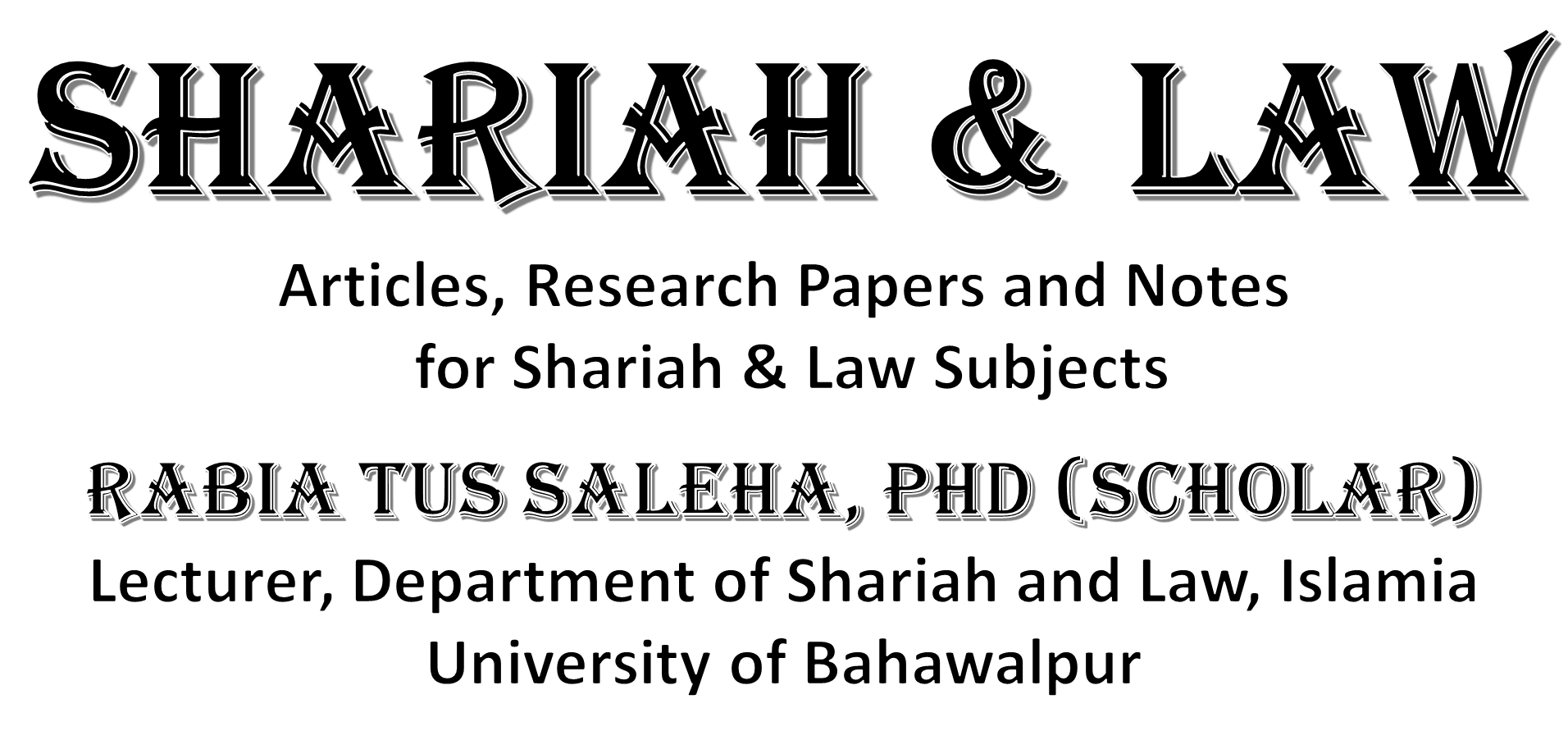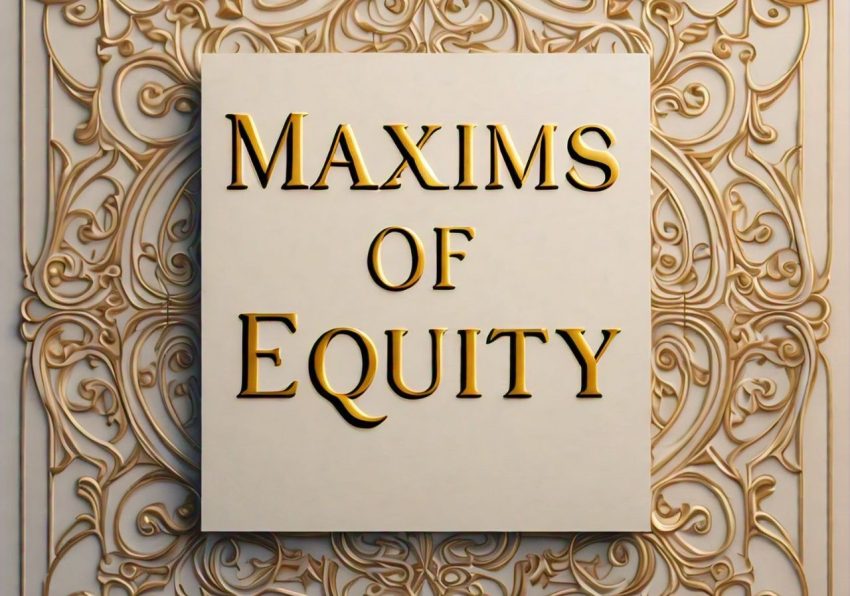Maxim: 6. He Who Comes to Equity Must Come With Clean Hands.
In the maxim “he who comes to equity must come with clean hands,” equity demands fairness not only from the defendant but also from the plaintiff. It is therefore said that “he that hath committed an inequity, shall not have equity.” While applying this maxim the court believed that the behavior of the plaintiff should not be against equity before coming to the court.
- The maxim requires that any willful act (in dispute of contract) which an honest and fair-minded person will condemn must not have been done by the plaintiff before coming to the court.
- The plaintiff must not have engaged in any illegal conduct in a contract regarding which he has filed a case in court.
- The plaintiff must have done the act in good faith.
- Equity demands fairness not only from the defendant but also from the plaintiff.
Application and Cases
-
Highwaymen case:
In Highwaymen case, two robbers were partners. Due to the disagreement in shares, one of them filed a case against another for accounts of the profits of robbery. Courts of equity do grant relief in case of partnership but here was a case where the cause of action arose from an illegal occupation. So, the court refused to help them.
-
Overton vs. Bannister: (Obligation under a trust)
The minor has fraudulently concealed his age and taken sum of stock which he was able to take on attaining majority. Further, minor filed a case for that stock after attaining the age of majority. The court refused to grant him relief because his act was fraudulent in the past in the same contract.
-
Relief in certain other situations
The working of this maxim could be seen while giving the relief of specific performance, injunction, rescission, or cancellation.
Specific performance:
If there is a legal and valid contract, but the plaintiff’s conduct was unjust or inequitable in making it. The court will not come to his aid but will leave him to the legal remedy only. E.g. The plaintiff has been guilty of taking undue advantage of the position of the defendant. Hence, specific performance in such cases is refused purely because the plaintiff does not come with clean hands.
Injunctions:
Equity will not grant an injunction to aid a party in the continuance of a legal wrong, even though the defendant is also committing a legal wrong. E.g. A violated the copyright of B’s immoral and libelous work. A will not be restrained by an injunction.
Recission or cancellation:
The court will not permit a recission or cancellation of an instrument if the plaintiff has been unfair or inequitable in his dealings touching the matter in dispute.
Limitations:
The general life of the plaintiff is not to be considered. It will be seen whether he was of clean hands in the same suit he brought or not. Brandies J. in Loughran v. Loughran said that “Equity does not demand that its suitors shall have led blameless lives.”
Exception
- i) If the transaction is against public policy
- ii) If the party repents for his conduct before his unjust plans are carried out.
Pakistani Law:
The maxim, he who comes to equity must come with clean hands, has been incorporated in various Pakistan enactments.
The Trust Act, 1882:
Section 23 of the Act provides that the beneficiary cannot sue the trustee to make good the loss to the trust property caused by a breach of a trust, if the beneficiary has, by fraud, induced the trustee to commit such a breach or has agreed in the breach of trust without any coercion or undue influence.
The Specific Relief Art:
Section 28 provides that equity will refuse to order specific performance of a contract, if the plaintiff has been guilty of undue advantage, circumvention or sharp practices. On the same principle no injunction can be granted to a party in the continuance of a legal wrong even if the defendant be also guilty of a legal wrong.
Under Chapters 4 and 5 of the Specific Relief Act, the reliefs of rescission and cancellation are available to the plaintiff if he fulfills the statutory conditions. The relief is, however, denied to him if the plaintiff does not come to the Court with clean hands.
Benami Transactions:
Where property is conveyed benami, with a view to defeat the claims of the creditors and that purpose, is achieved, the real owner will not be allowed to recover the property. A property is purchased and registered in the name of A. However, it is B who actually pays for the same. A only agrees to hold the property for B.
The distinction between maxims no. 5 and 6:
| 1. | He who seeks equity must do equity | He who comes to equity must come with clean hands |
| 2. | It is applicable when both the plaintiff and the defendant have claims of equitable relief against each other. | It is applicable when the defendant has no separate claim to relief and the plaintiff’s conduct is unfair. |
| 3. | It exposes the condition subsequent to the relief sought. | It is a condition precedent to seeking equitable relief. |
| 4. | It refers to the plaintiff’s conduct as the court thinks it ought to be, after he comes to the court. | It refers to the plaintiff’s conduct before he approaches the court. |
| 5. | The plaintiff has to mold his behavior according to the impositions by the court. | If the plaintiff’s conduct is unfair, it would not entitle him to the relief sought. |
| 6. | The plaintiff has an option or a choice before him either to submit to the conditions put by the court, or to get out of the court. | The conduct of the plaintiff snatched his choice from him. His equitable right therefore neither be recognized nor enforced. |
| 7. | This maxim looks to the future. | This maxim looks at the past. |


1 thought on “6. He Who Comes to Equity Must Come With Clean Hands.”